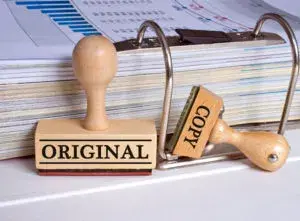
A counterfeit product is one that is intended to deceive consumers into buying a fake or fraudulent product by misappropriating someone else’s registered trademark or one that is deceptively similar to the said trademark without authorization and in order to gain illegal profits by riding on the reputation and goodwill associated with the trademark. Recently, the Authentication Solution Providers’ Association or ASPA has reported that India suffers a loss of over one lakh crore rupees per annum owing to the sale/purchase of counterfeit goods by consumers across all sectors. Established in 1998, ASPA is a self-regulated, non-profit organization tasked with combatting fake and fraudulent goods in circulation in the market. As per the information provided on ASPA’s official website, its members protect over 15,000 brands worldwide through the identification of genuine products and services by providing them with cost-efficient and technologically innovative anti-counterfeiting solutions.
According to ASPA’s president Mr. Nakul Pasricha, counterfeiting in India is most prevalent in the pharmaceutical industry. Given that counterfeiting in the pharma/medicine sector poses a major threat to public health and safety, Mr. Pasricha has urged the government to take adequate steps to mitigate such risks. He further stresses on the need for proper implementation of authentication solutions, enforcement, awareness and monitoring and envisages reducing counterfeiting in India by 50%, which would mean saving fifty thousand crore rupees per annum. Quoting from a report of the Organisation for Economic Co-operation and Development , Mr. Pasricha states that unfortunately in India, trade in counterfeit goods has risen steadily in the last few years globally with trade volumes in fake products now standing at 3.3 % of total global trade, thereby causing brand owners to suffer huge losses in revenue.
Furthering ASPA’s objectives of adoption and advancement of authentication technology, the ASPA president talked about several kinds of technologies available against counterfeiters, namely, anti-tampering, tracking and tracing. He also illustrated Nigeria’s example that adopted both physical as well as digital authentication solutions and reduced its rate of counterfeiting from approximately 20% to 3.5% in the pharma sector in three years. Lastly, citing the high return of investment and positive impact of anti-counterfeit solutions around the world, Mr. Pasricha expressed confidence that India too will be on the road to adopt authentication technology.
As per its website, ASPA also talks about placing reliance on promising anti-counterfeiting technologies, such as, Blockchain, Artificial Intelligence, NFC, traceability, etc., to provide support to the government in the fight against counterfeiting, increasing brand protection and safeguarding consumer interest . Surely, ASPA has provided some alarming statistics that highlight the extent of India’s counterfeiting problem. However, with the promise of advanced anti-counterfeiting technology, an end to India’s counterfeiting epidemic does seem to be in sight.
[1] https://www.oecd.org/newsroom/trade-in-fake-goods-is-now-33-of-world-trade-and-rising.htm
[2] https://aspaglobal.com/wp-content/uploads/2019/07/20190716-Authentication-Solution-Provider%E2%80%99s-Association-ASPA-all-set-to-launch-a-new-fight-against-counterfeiting-in-India.pdf

